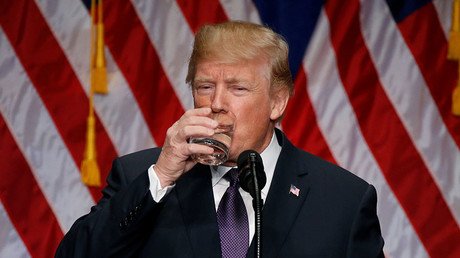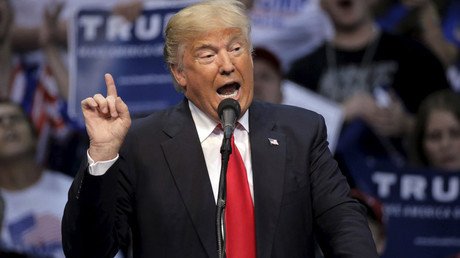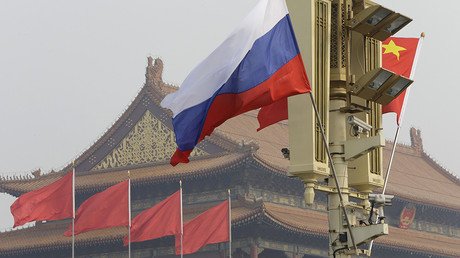Trump’s ‘Orwellian’ strategy speech: Triumph of the neocons?
US President Donald Trump’s new national security strategy pledges to maintain global supremacy while defending America at home. Many observers noted disconcerting echoes of neoconservative policies Trump himself once criticized.
Trump administration officials welcomed the new strategy. Secretary of State Rex Tillerson praised it for bringing “all elements of American power to protect our people, generate new economic opportunities, and advance our interests and democratic principles.” Attorney General Jeff Sessions lauded its commitment to protecting the US by securing the borders and reforming immigration.
President Trump is announcing a new National Security Strategy for a new era. Read more: https://t.co/EPEpGYYzITpic.twitter.com/2RGOTe3ivw
— The White House (@WhiteHouse) December 18, 2017
Many observers of US foreign policy, however, were alarmed by the strategy’s continued insistence on American global dominance.
Trump promised to preserve peace through strength, but the US is not at peace today, scholar Nicolas J.S. Davies told RT. Washington has 291,000 troops in 183 foreign countries, and sent special operations troops to 149 countries in 2017 alone, Davies pointed out.
“Pretending we are at peace and vowing to preserve it by diverting even more of our resources to the military industrial complex is not a national security strategy. It is an Orwellian deception taken straight from the pages of 1984,” added Davies, author of Blood On Our Hands: the American Invasion and Destruction of Iraq.
Matthew Hoh, a former US Marine and now a leader of Veterans For Peace, called Trump’s speech “both more Orwellian and less polished than we have seen before from the White House.”
“Trump’s actions overseas have not been much different than any of his predecessors,” Hoh told RT. “His actions have been a military-first, interventionist and hypocritical foreign policy, not based on cooperation between nations and a respect for human rights and dignity, but rather a preservation of American hegemony and primacy that results in mass suffering and death.”
Trump is continuing with his predecessor’s confrontational stance in Europe against Russia and the “pivot to Asia” against China, while giving the US military more money than it knows what to do with, noted Dave Lindorff, founding editor of ThisCantBeHappening.net.
“His calls back during the presidential campaign for the US to be done with ‘nation building’ appear to have been forgotten as the US forges ahead with increased combat in Afghanistan. It looks like after appearing to be on the run, the neocons have taken control of foreign policy again,” Lindorff told RT.
In the speech announcing the strategy Monday, Trump criticized his predecessors for engaging in nation-building abroad while neglecting the American homeland, but did not say he would abandon the practice going forward. He also framed the world relations as a competition between the US and other countries, which America was determined to win.
“There was a considerable amount of boasting, some of it quite ridiculous, as in the implication that it was the Trump administration that had succeeded in defeating ISIS,” former CIA officer and counter-terrorism specialist Philip Giraldi told RT. “There were only two concrete pledges: we will built a wall along the Mexican border and we will spend more money on the military.”
“I was pleased that Russia and China were described as rivals, not as enemies,” added Giraldi.
Some of the rhetoric in Monday’s speech can be understood as catering to Trump’s domestic political base, maintaining the narrative of American exceptionalism and a “religious worldview that views the US as inherently good and moral, despite the reality of US actions,” said Hoh.
Monday’s speech sounded a lot like Trump’s inauguration address, and the big takeaway is that imperialism is still on track while “the man who said that he would drain the swamp has taken up residence right in the middle of it,” Jason Hirthler, author of The Sins of Empire, told RT.















